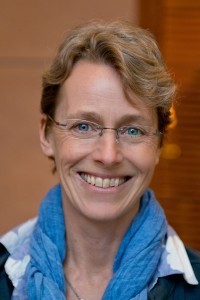History Professor Kate Brown has been awarded an American Council of Learned Societies (ACLS) Collaborative Research Fellowship to study the long-term effects of low doses of radiation on human health in the context of the Chernobyl disaster nearly three decades ago. Brown will be working with Timothy Mousseau, an evolutionary biologist at the University of South Carolina.
The two scholars, with Brown providing the humanist perspective and Mousseau the scientist perspective, will collaborate to explore how knowledge and ignorance of the impact of the disaster has been produced over the last thirty years. The project will aim to historically analyze three decades of scientific research on Chernobyl and Fukushima to highlight the known and debated impact on humans, animals, and plants from long term, low dose exposure to radiation. The research comes at a time when nuclear power is being discussed as a solution to climate change and energy independence.
The project, titled Chernobyl Revisited: An Historical Inquiry into the Practice of Knowing, will run for two years. For more information on the ACLS Collaborative Research Fellowship program, click here.
In related news, Brown published an op-ed on January 21 in Time that discussed nuclear waste cleanup at the Hanford plutonium plant in eastern Washington State. In her article, she analyzed why the cleanup has been such a prolonged, difficult problem to deal with: “…the former Hanford plutonium plant became the largest nuclear clean-up site in the western hemisphere. It costs taxpayers a billion dollars a year,” she wrote.
To read the full column titled “How the Atomic Age Left Us a Half-Century of Radioactive Waste,” click here.

